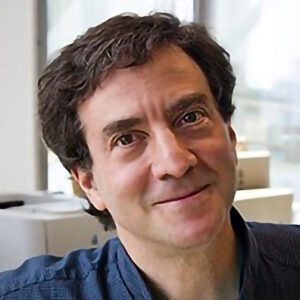Meet our Investigators: Thomas Schwarz, PhD
How long have you been a member of the IDDRC? Which organization and department do you work for?
I’ve been a member for 20 yrs since I first moved to Boston Children’s Hospital and the FM Kirby Neurobiology Center. It wasn’t always called IDDRC, but the concept was the same and a few of the core facilities now were cores also then.
What is your main research focus and work?
We study basic neuronal cell biology and the relevance of that biology to human developmental and neurodegenerative diseases. For many years our focus was on synapse formation and function, however that expanded to also include mechanisms of axonal transport and neuronal mitochondria. When I came to BCH, most of our work was in Drosophila, with some in mice. Now most of our work is in mice, rats, and human iNeurons – with just a little still in Drosophila. Some of our most exciting projects started with mutant screens in Drosophila and then moved into mammalian neurons to study the genes and pathways we had identified first in the fly.
A good example is our discovery that proteins of the kinetochore complex, the structure that attaches microtubules to chromosomes when cells divide, also functions in post-mitotic neurons to shape the formation of synapses. That began with a screen for synaptic defects at the fly neuromuscular junction, but now involves mice and iPSCs with conditional alleles for disrupting kinetochore components selectively in the post-mitotic neurons. Here was a set of proteins studied for decades but whose role in sculpting how connections form in the brain was never suspected until a lucky finding in a mutant fly opened the door for us.
What led you to pursue research career and/or interest in IDD?
I had an early fascination with genetics and cell biology and already in graduate school I wanted to see these applied to neuroscience. Each time a gene is mapped that is responsible for an IDD, it points to another aspect of neuronal cell biology that we need to understand. The questions are endless and the need for answers is great.
Any comments on the services of a core/or particular equipment that advances your current research?
We couldn’t do what we do without the IDDRC cores. Period. I could not have so quickly moved our questions from a fly to a mouse had not the Genetic Manipulation Core (aka Gene Editing Group | Gene Analysis and Editing Core) that is so very competently and efficiently run by Mantu Bhaumik made it possible to use CRISPR to engineer exactly the complex mouse strains we needed. We could design the constructs, with input and guidance from the core, and then they accomplish the very delicate manipulations of embryos and mice required to generate what we want. It would be crazy to try to bring that technology into every lab independently – but here it was easy to go from idea to genetically modified mice with clear communication all along the way. The same is true for the Human Neuron Core – we would not have been able to seamlessly pick up IPSC and iNeuron technology without a core to guide us. Finally, my lab is incredibly, totally, dependent on the Cellular Imaging Core. Cellular Neuroscience is all about microscopy – seeing dendritic spines, synapses, moving mitochondria – and we need state of the art microscopes to get the most detailed information about those structures. The Imaging Core creates a shared facility with a strong collection of instruments and an outstanding staff to maintain the scopes and train the users. Again, no single lab could possibly bring that sort of imaging power to bear on their questions – the Imaging Core and its staff make it possible.
Are you interested in collaborating or offering any collaborative opportunities?
Always happy to share our experience with cell biology and especially mitochondria!
Something fun/personal: interesting tidbit about you
My lab is accustomed to my idiosyncrasies – biking in to work in Lycra all year long, having opera or chamber music blasting in my office, having postdocs coach me on cooking Chinese or Indian vegetarian dishes. They are very forgiving of my quirks! But I firmly believe one can be devoted to science and have other passions as well. With my kids grown and flown, there is a little more time for these other interests.



